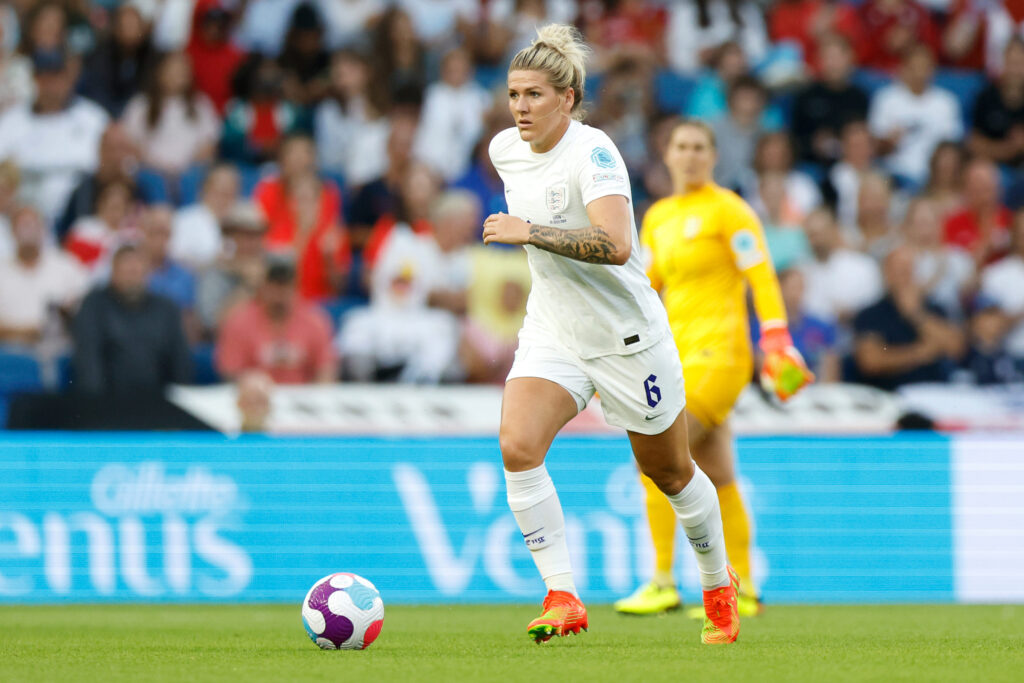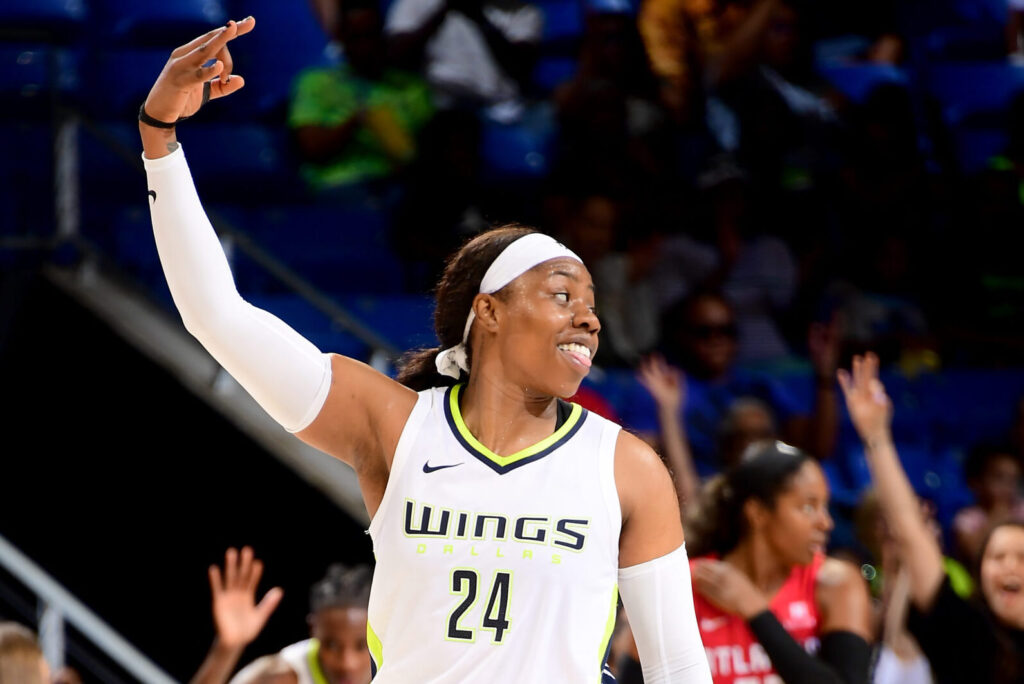England is riding a high after its quarterfinal win over Spain, securing the hosts a spot in the UEFA Women’s Euro semifinal Tuesday.
Eager to hoist the Euros trophy in front of a home crowd, the Lionesses are looking for any way to gain a competitive edge, including tracking the team’s menstrual cycle.
Star defender Millie Bright opened up to Telegraph Sport ahead of England’s quarterfinal, revealing that she would likely be on her period for the matchup.
“I can 100 percent tell you I’ll be coming on very shortly, if my cycle is correct,” Bright told Telegraph Sport, “but I’m very confident in my plan and the things that I need to put in place to reduce my symptoms.”
The plan Bright refers to was spearheaded by Dawn Scott, who took over as The Football Association’s senior women’s physical performance manager in 2019. Before that, she was the performance manager for the U.S. Women’s National Team for nearly a decade.
Scott began addressing menstrual cycles’ impact on performance during her USWNT tenure, employing the research of Dr. Georgie Bruinvels, a British sports scientist.
“Sixty, 70 percent of the players are telling us that their symptoms have got easier,” Scott told The Athletic in 2020, speaking on her work with the USWNT. “They still have symptoms – we’re not going to take them away – but they feel like their symptoms are less severe.
“For me, feedback from players at this level is as good as a research paper that is done to that depth of validity and reliability,” Scott said, adding that research on menstruation is limited and more needs to be done in the space.
Through surveys and educational sessions, Scott began to amass essential data, which eventually helped her develop a strategy for the U.S. players.
“With that whole package, over a number of months, you start picking out patterns of symptoms and seeing if they’re related to the menstrual cycle or if they’re just related to being an athlete and being sore at different times,” she said. “Then it was a case of developing individual symptom management plans to try and reduce the symptoms and their severity, accelerate recovery and ultimately reduce the impact on performance.”
Scott continued her work with the FA before departing the association in 2021, but the innovations she put in place continue, including the work of Bruinvels.
“Because we’ve tracked the Lionesses intently since the 2020 SheBelieves Cup, we now know what players’ cycles look like and we know what symptoms they might experience,” Bruinvels told Telegraph Sport. “We’ve worked to really understand what they need to do at different times to manage those symptoms. Effectively, everyone has a unique footprint and over time we’ve developed a holistic understanding of what that is and how we can manage it and work with it.”
The embrace of the period program marks a new trend in sports, acknowledging menstruation’s impact on performance. Though there are glaring gaps in research regarding women’s health, eliminating the taboo around menstruation marks a critical step in the right direction.









